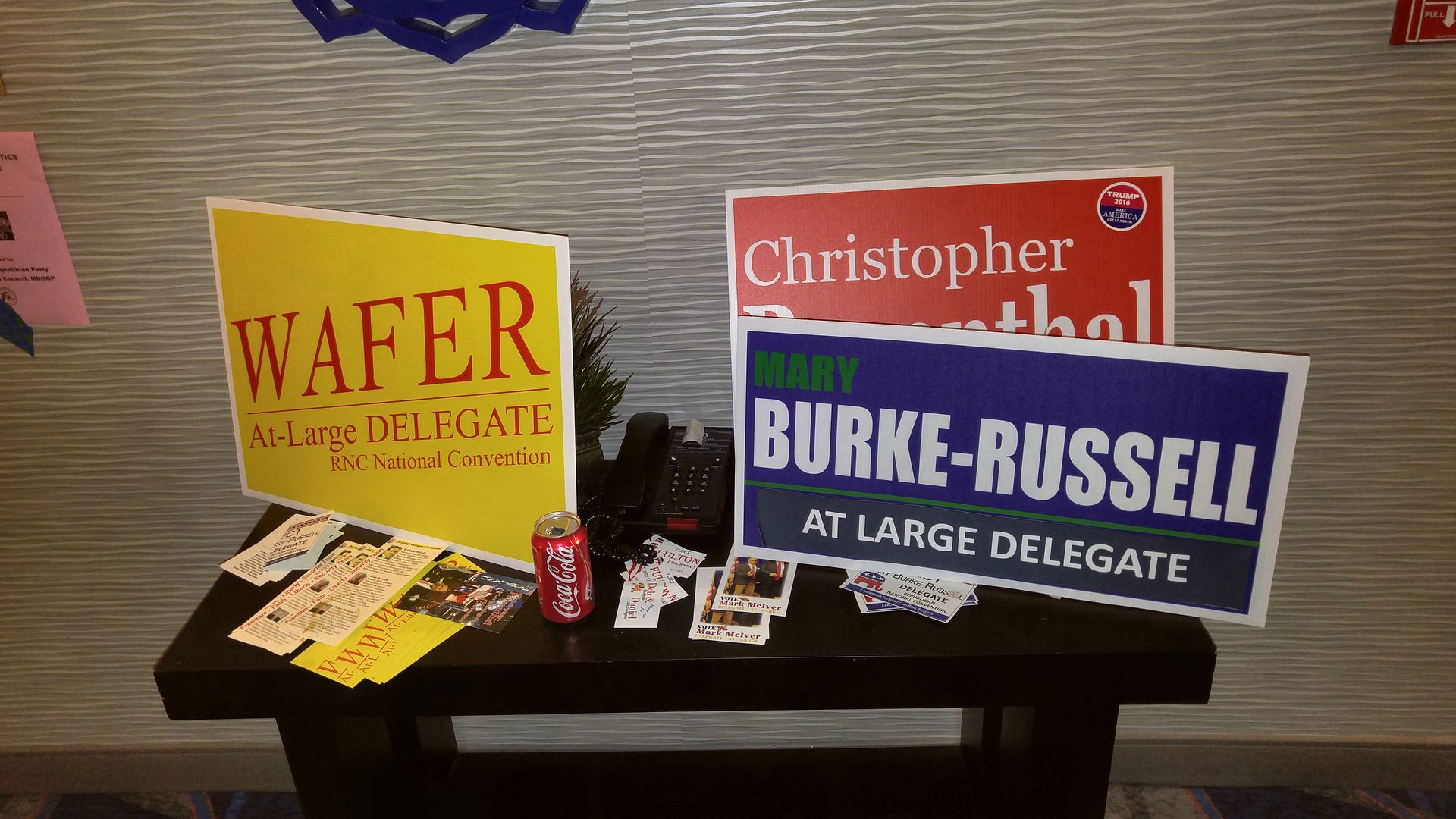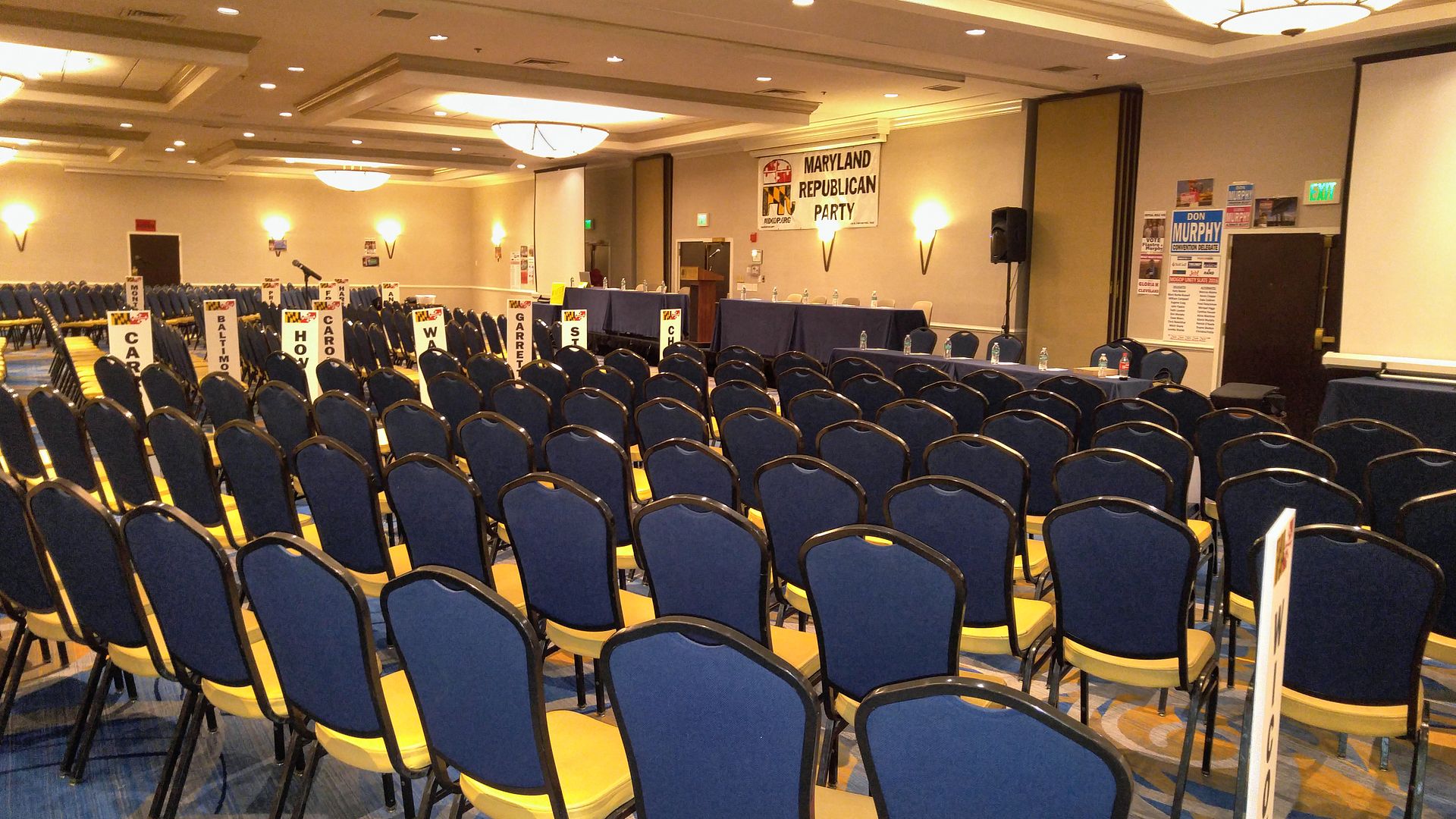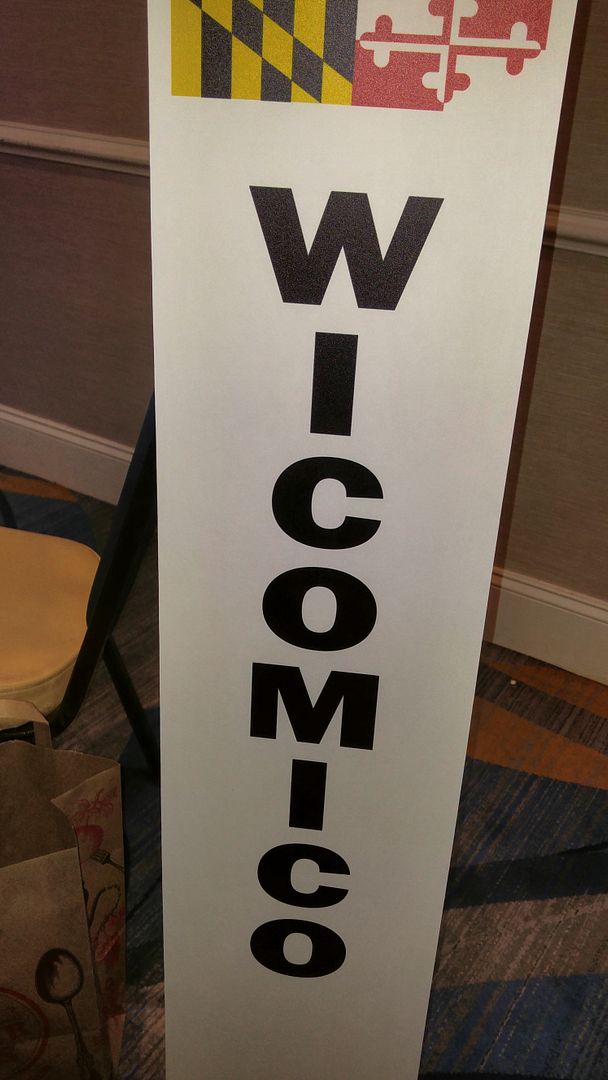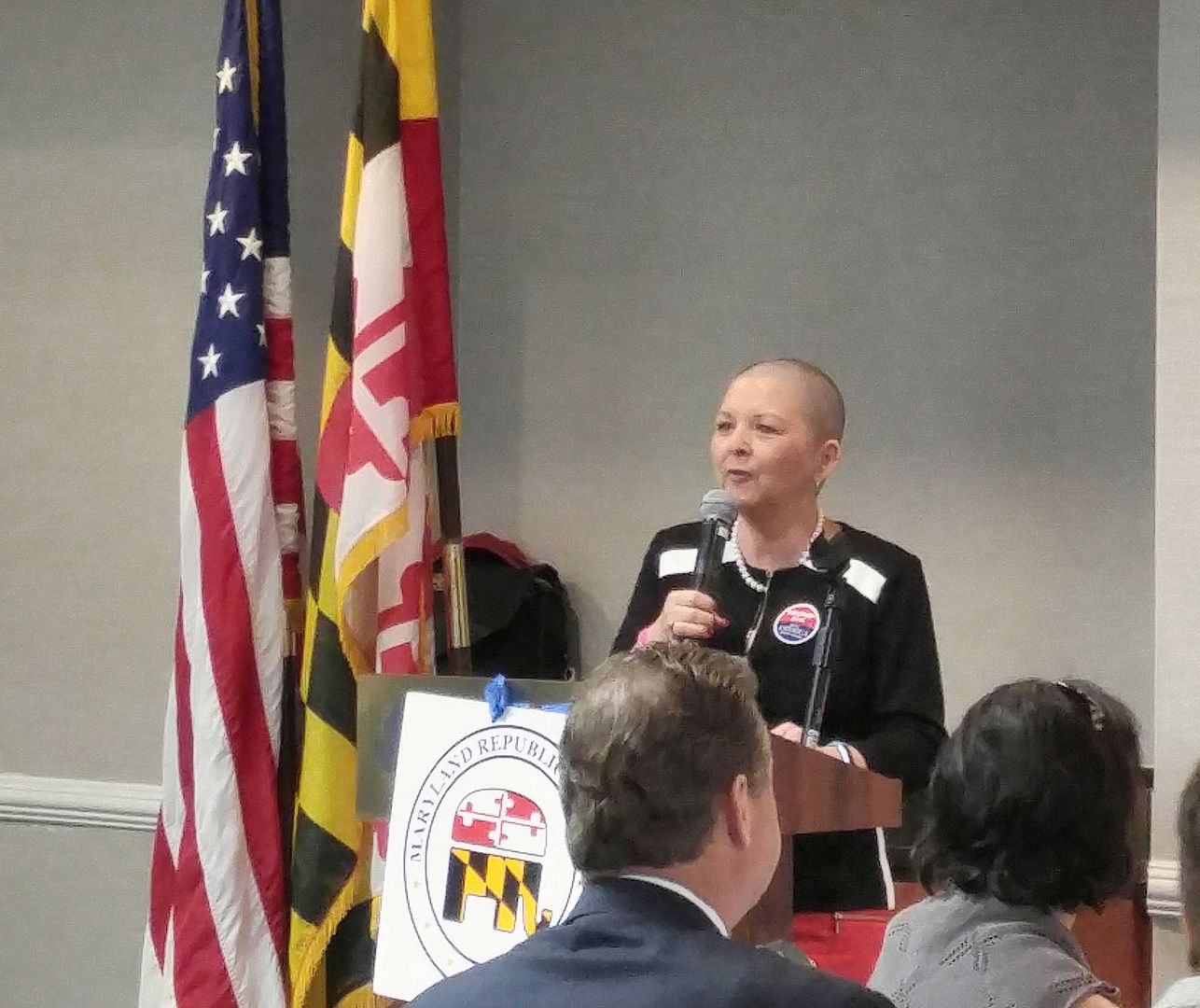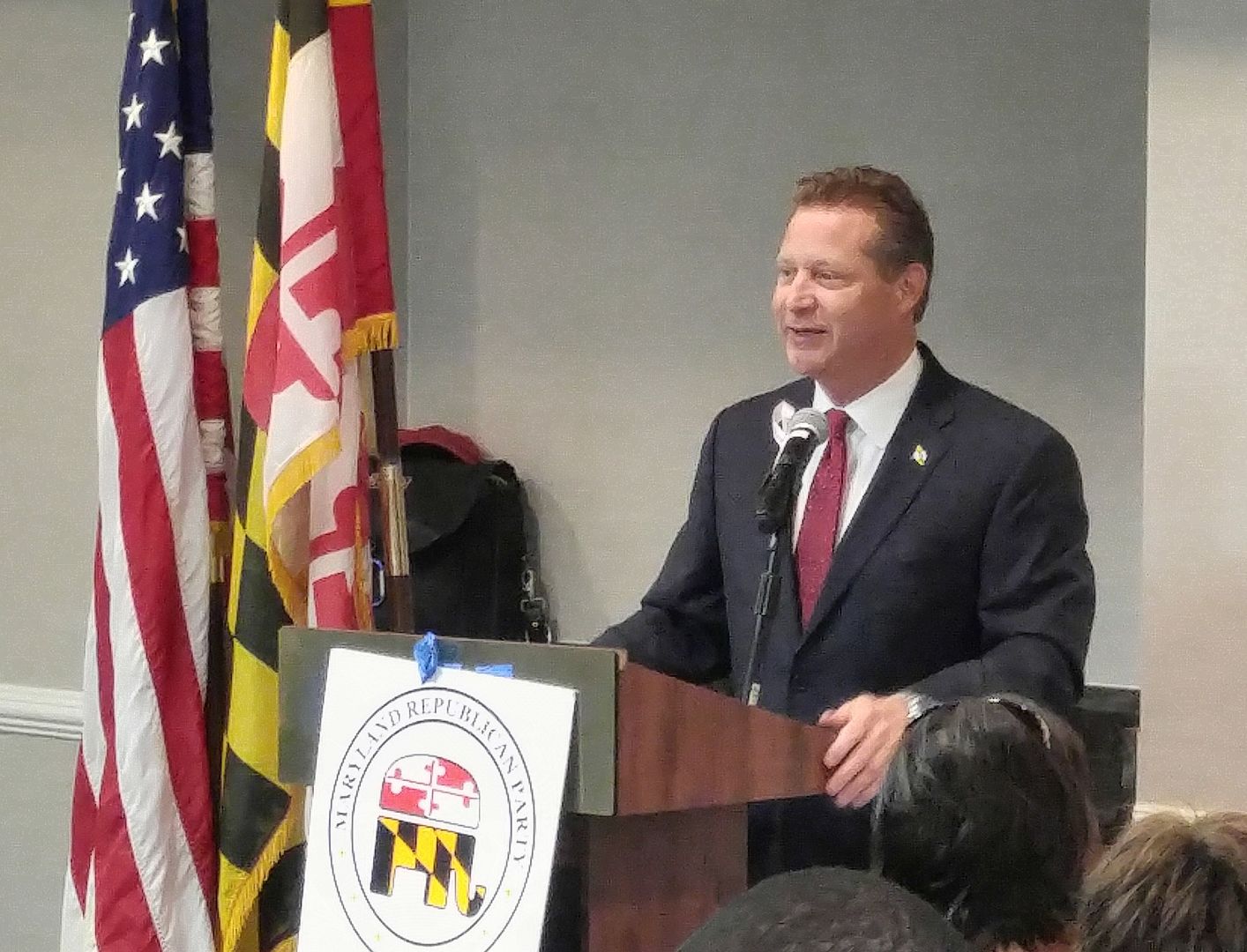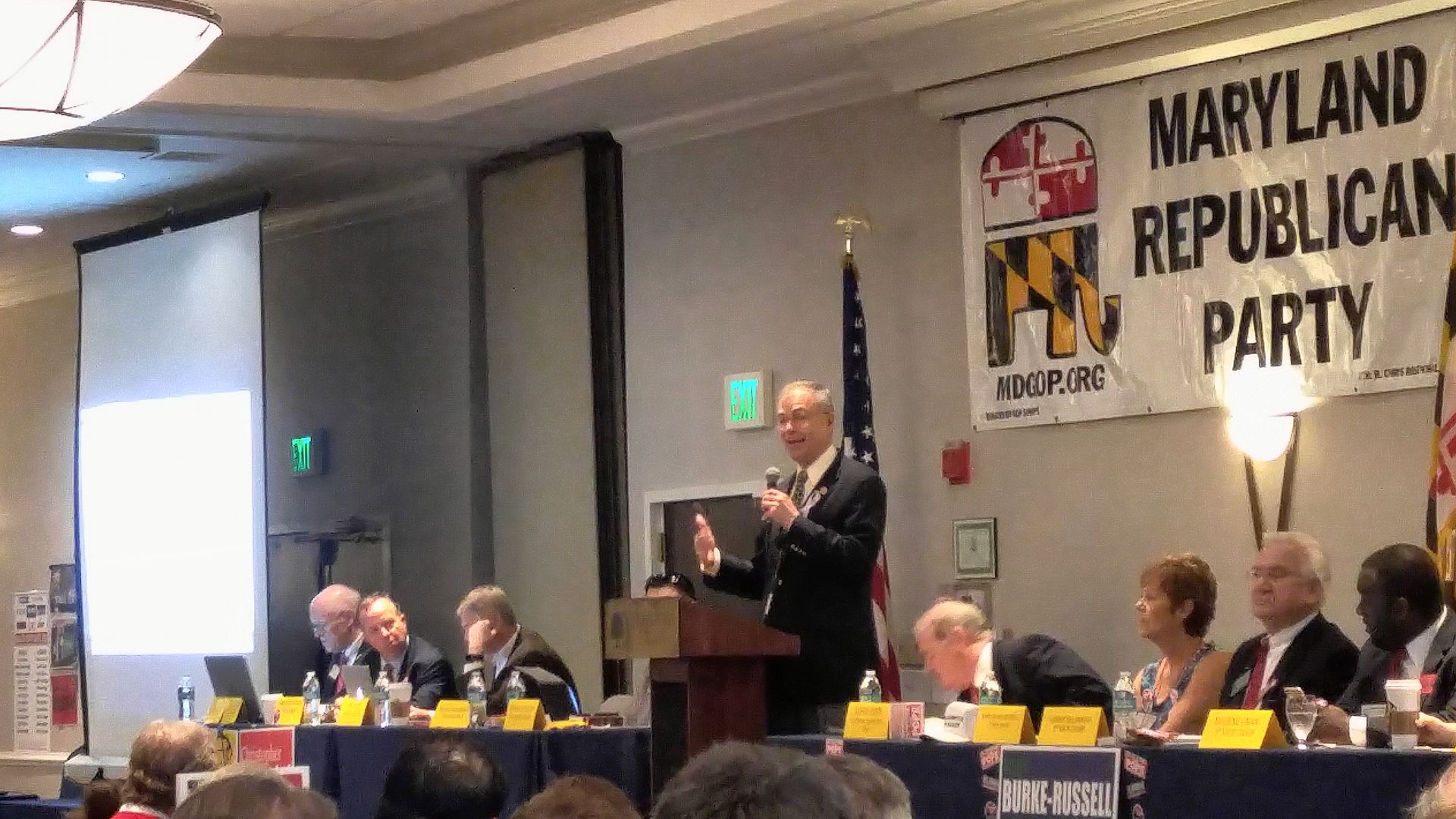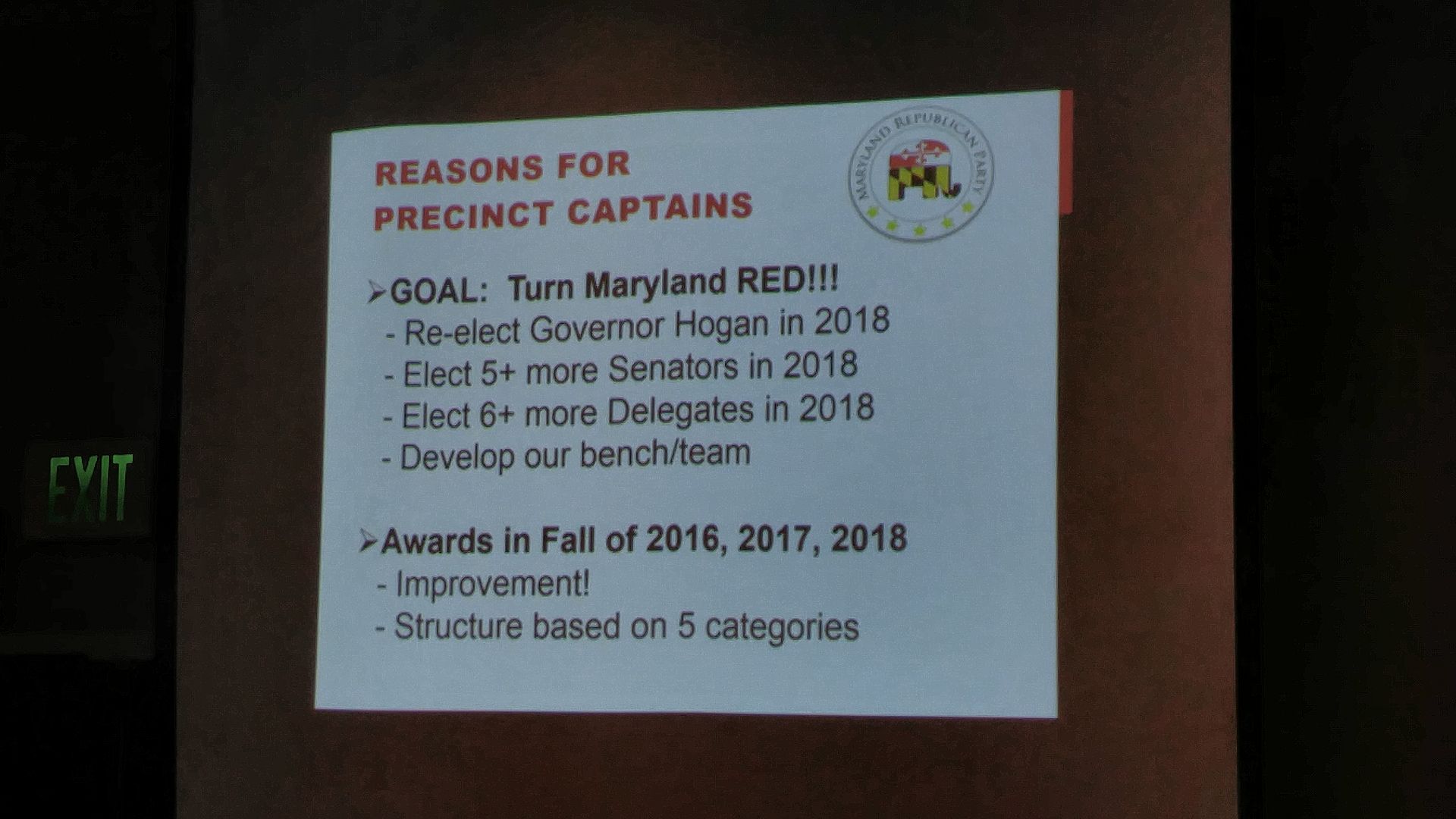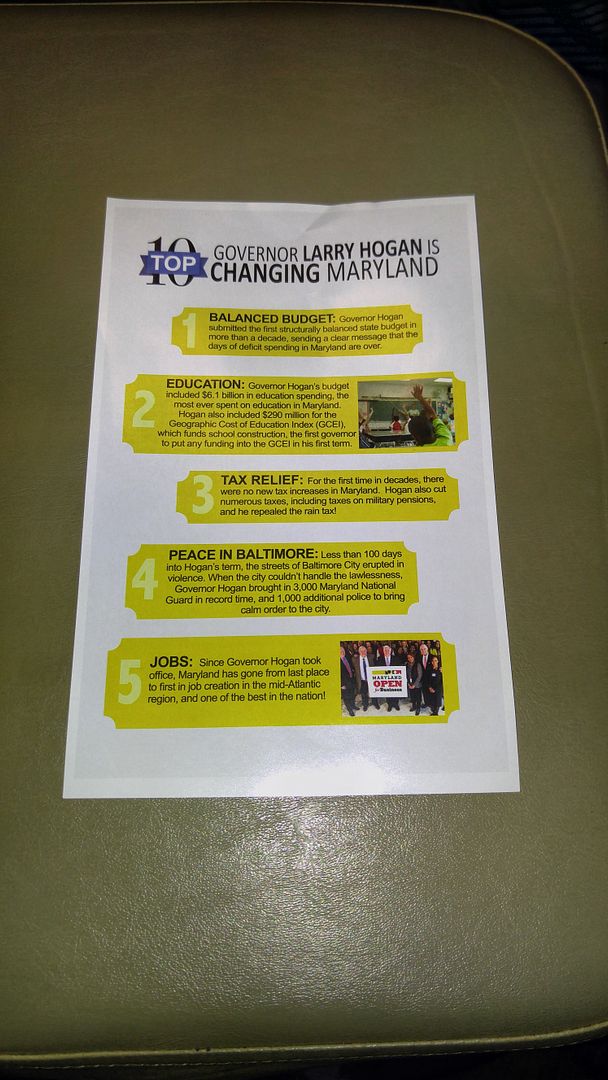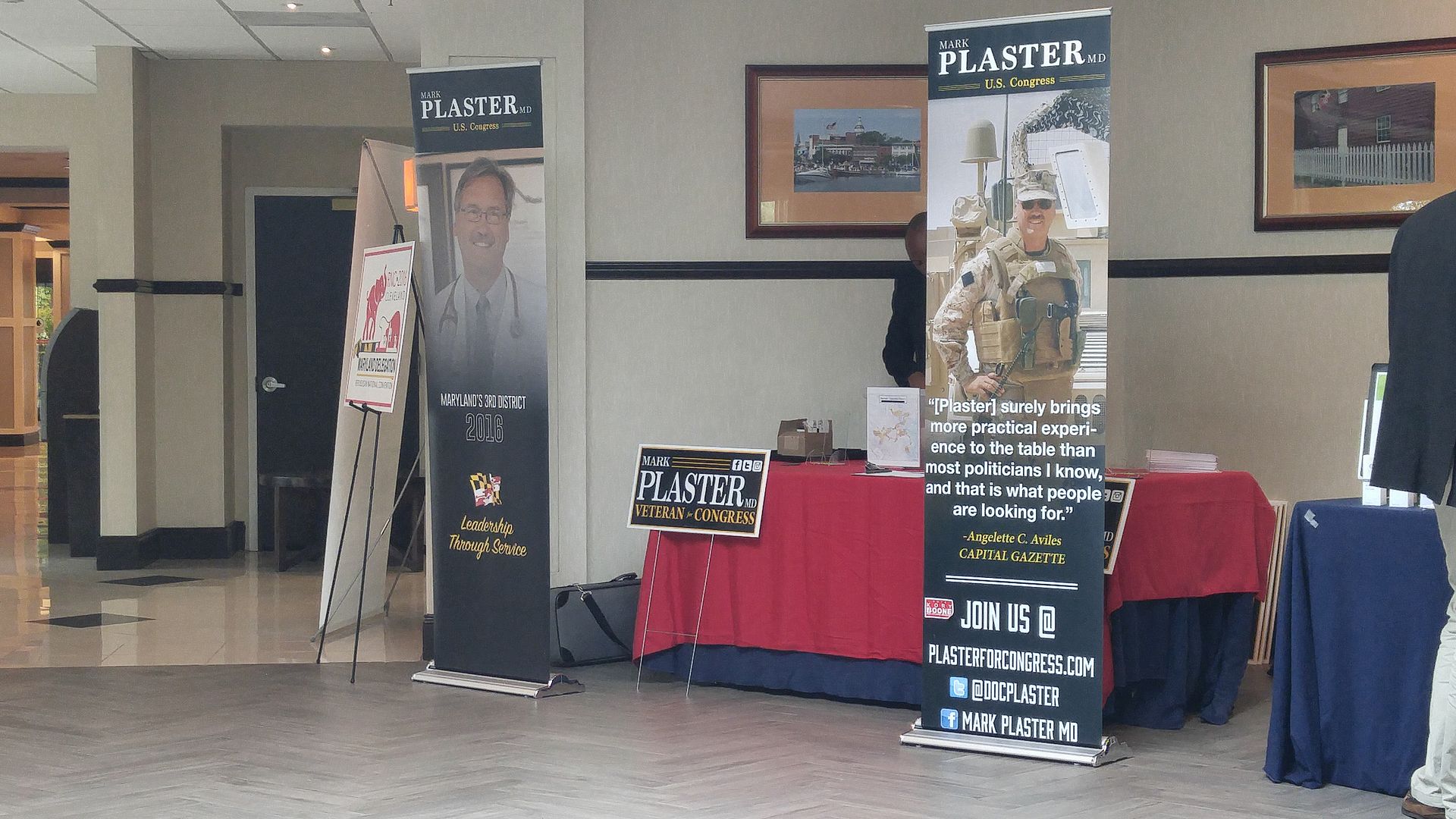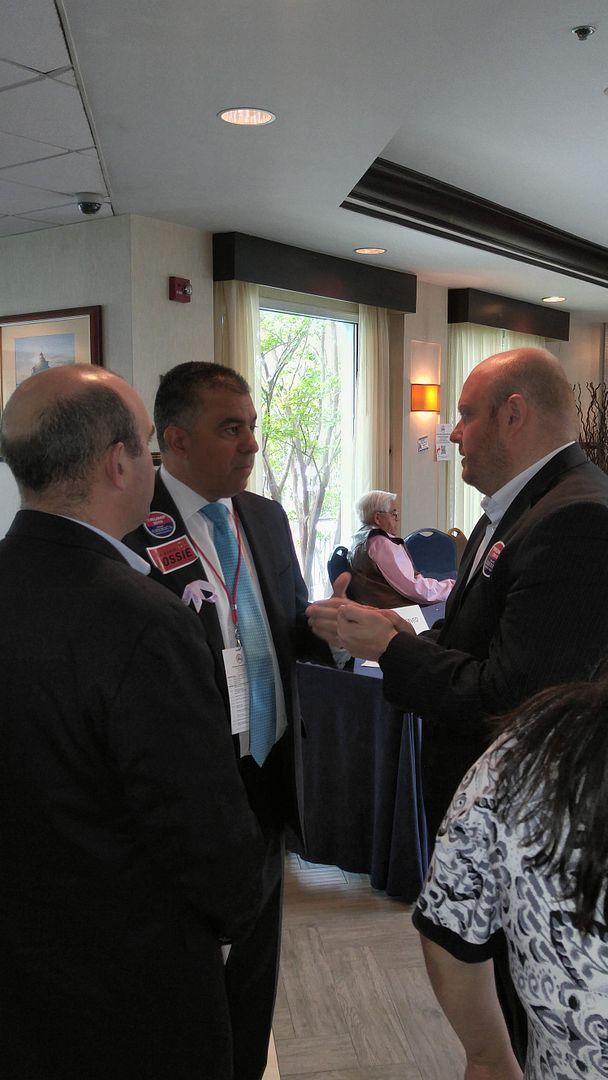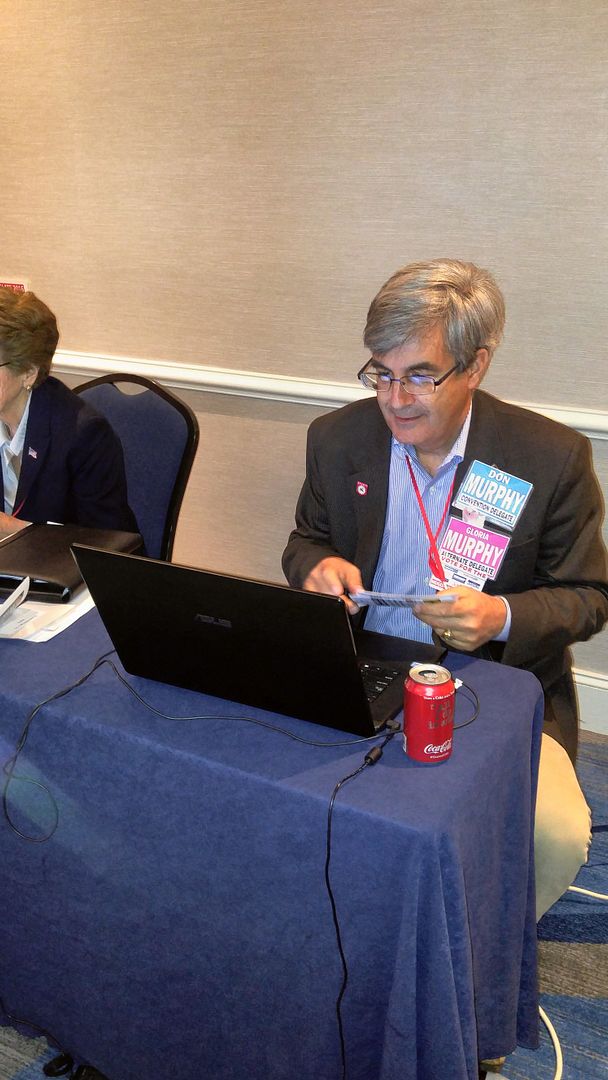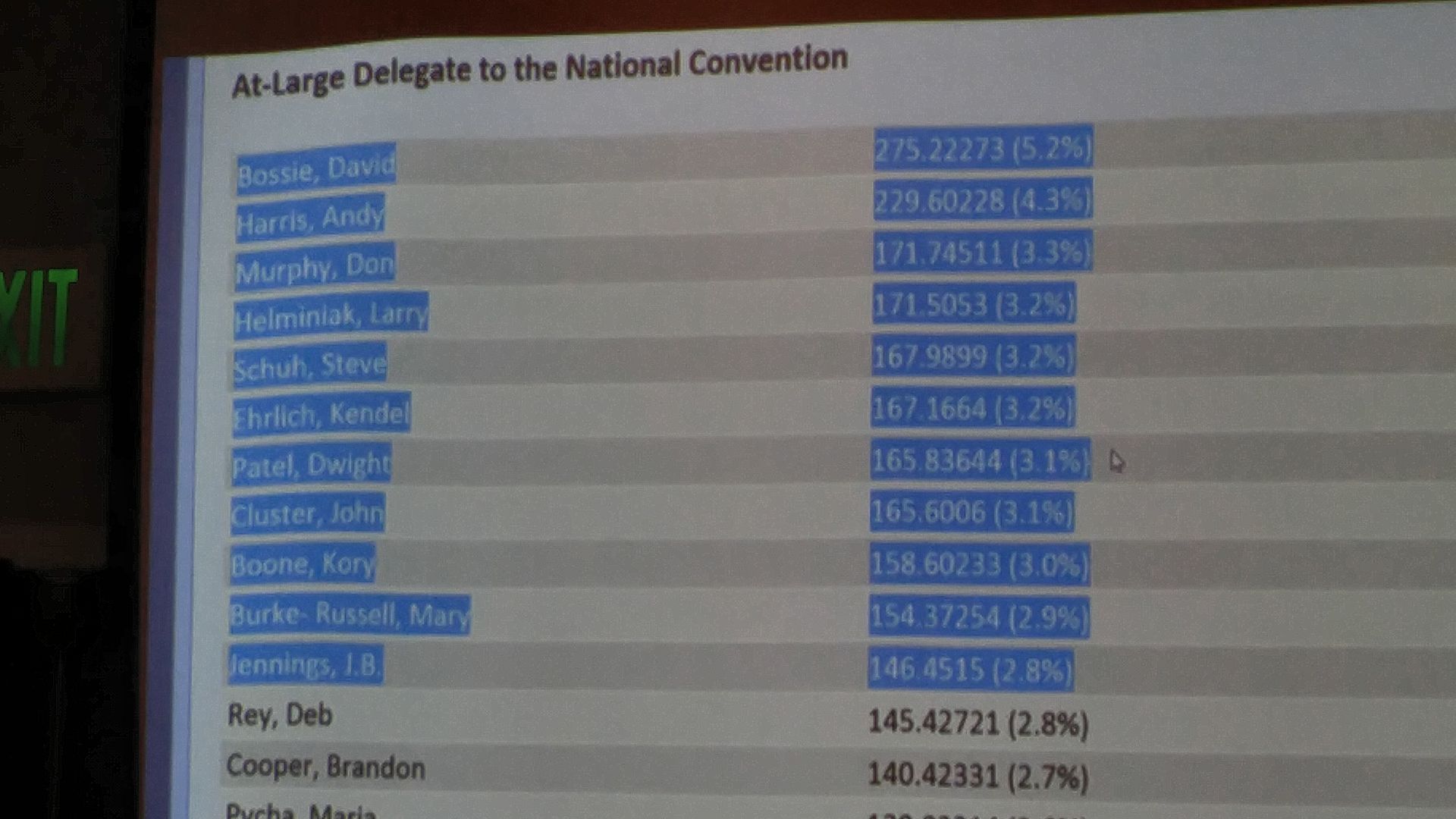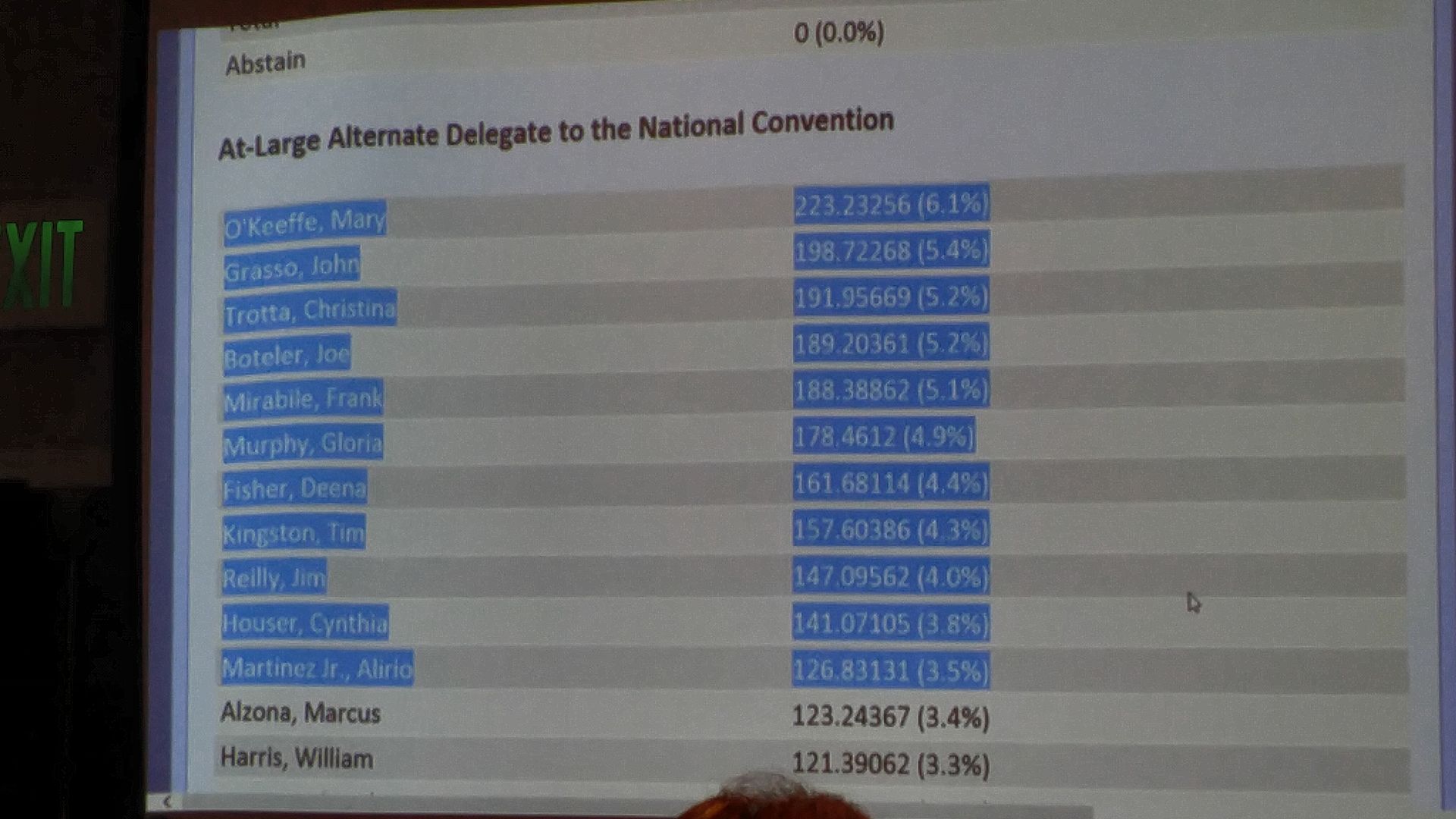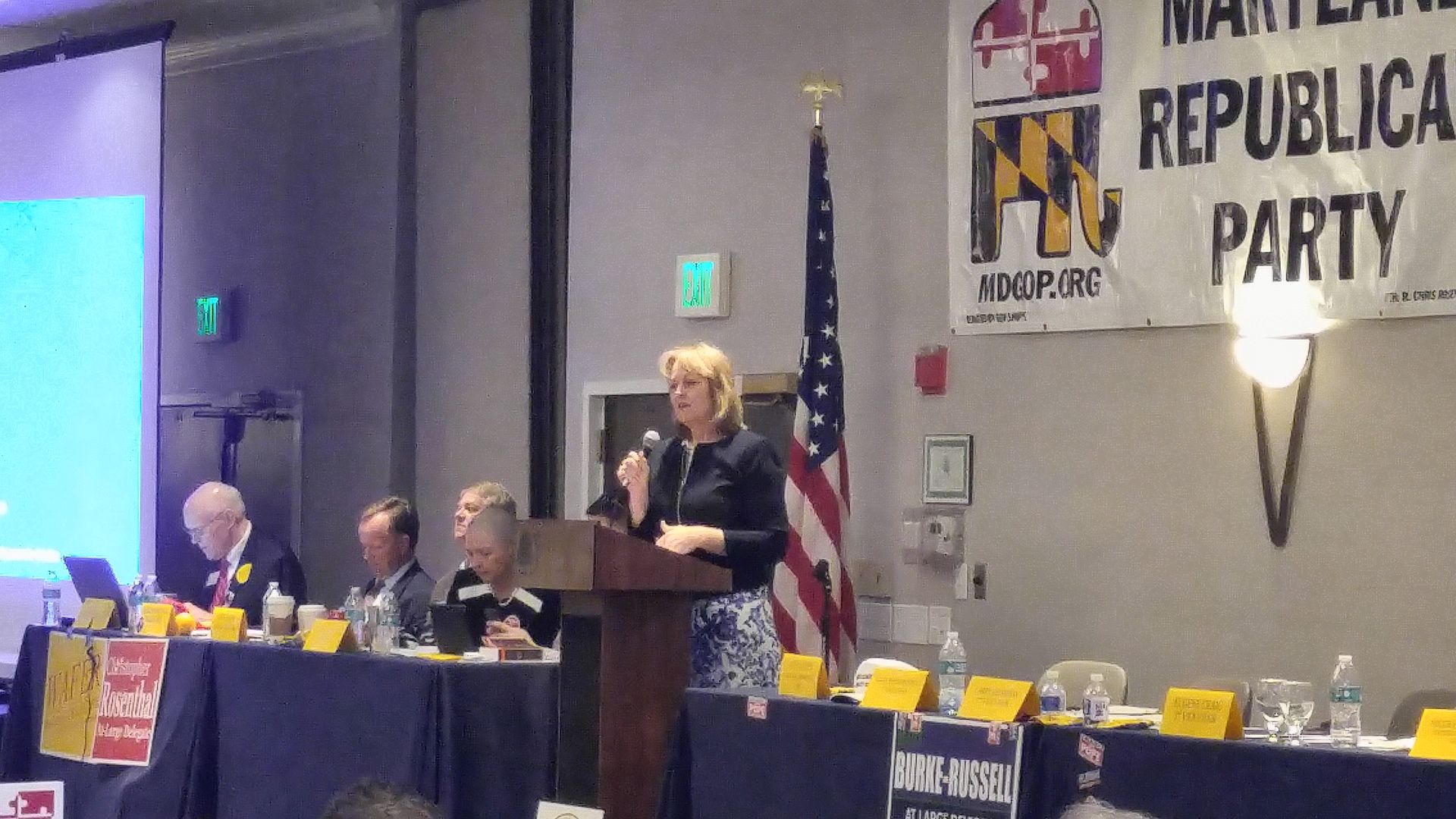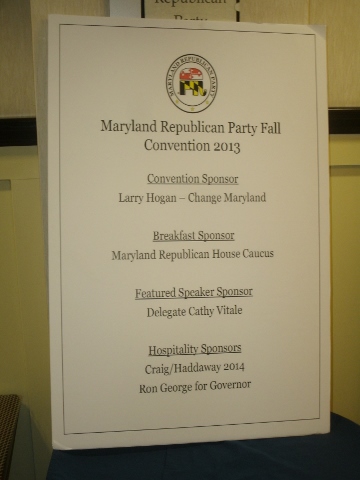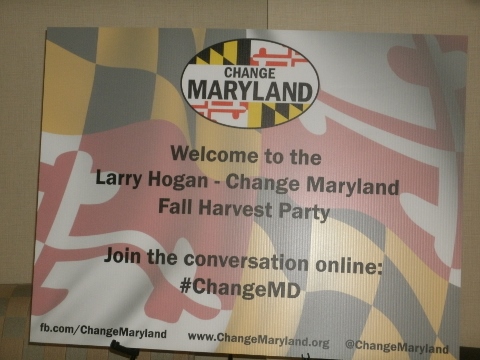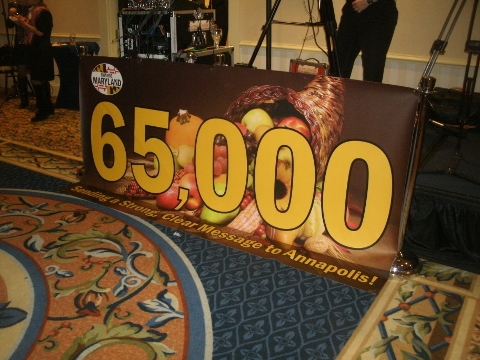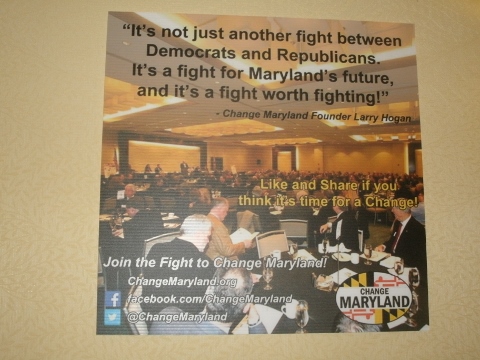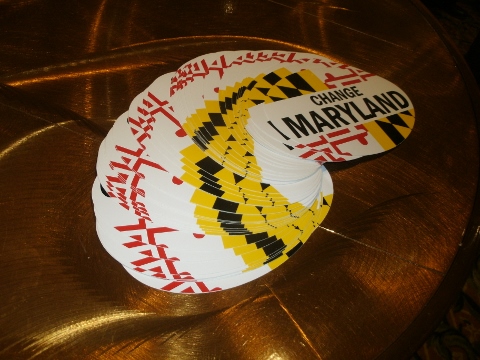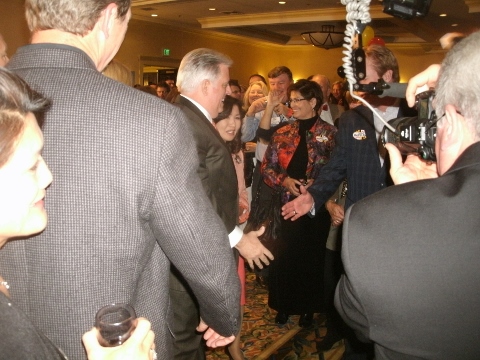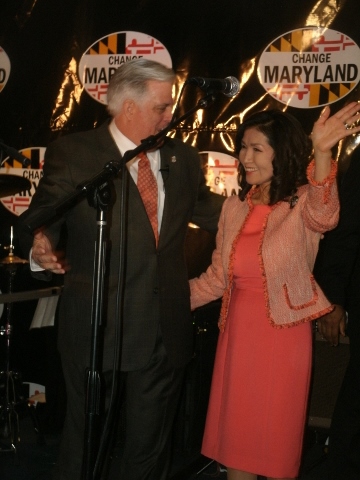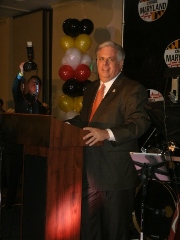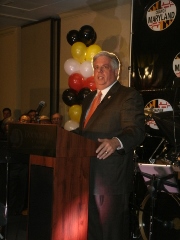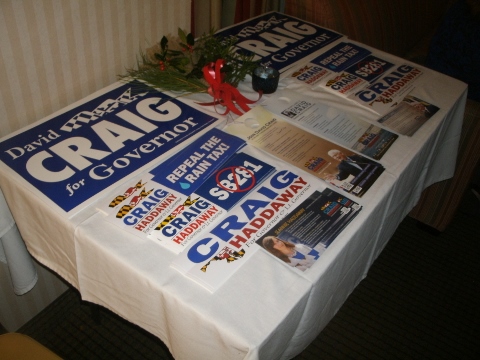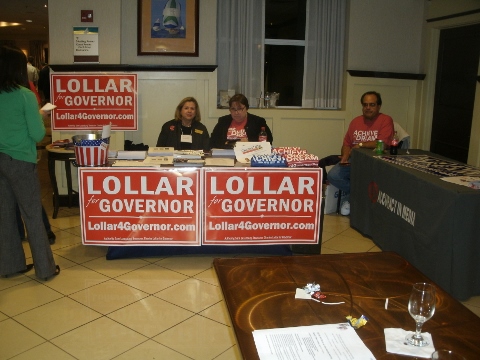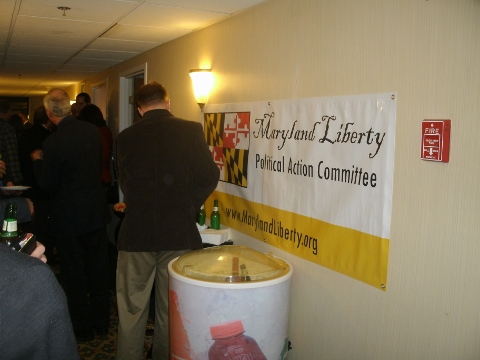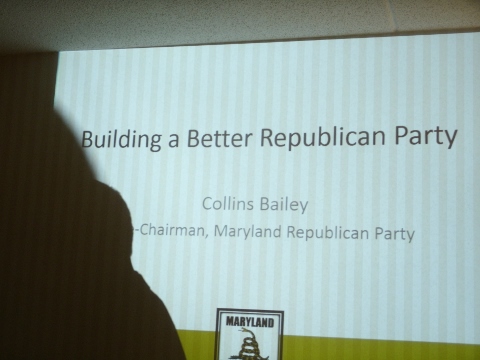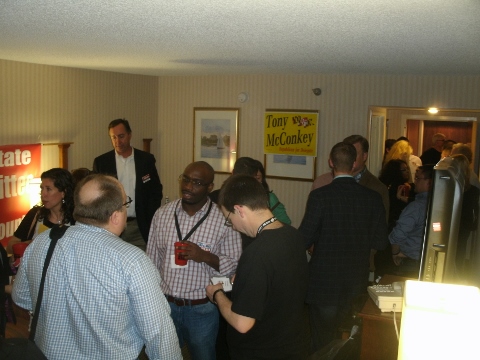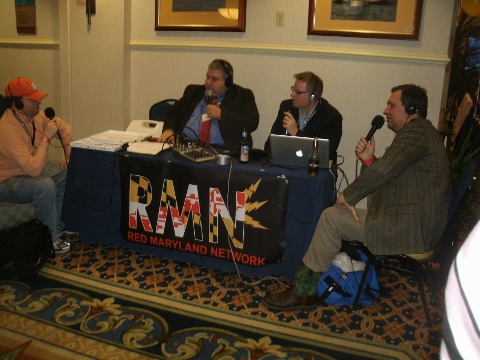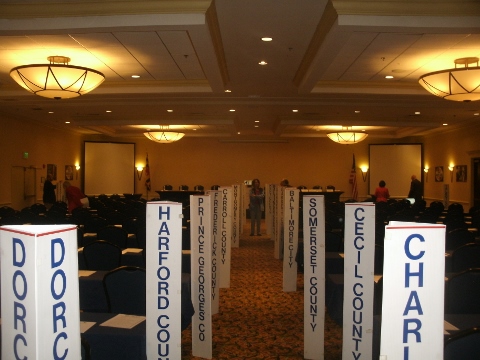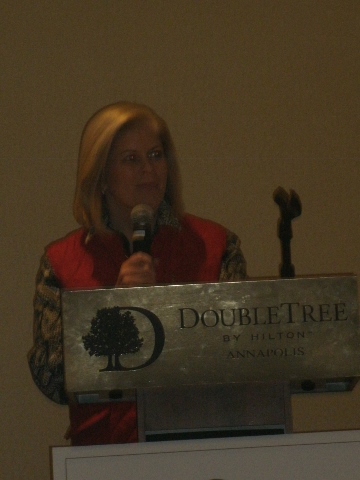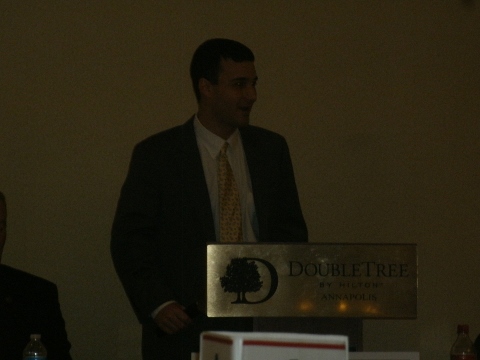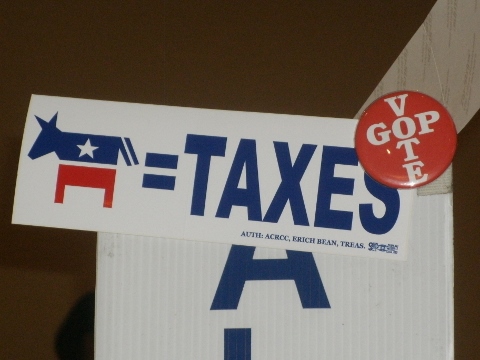So let’s talk about Larry Hogan, shall we?
I’m going to start way back in 2009. People tend to forget Larry actually had his eye on running for Governor back then and was briefly in the running until he deferred to his old boss and allowed him to get his doors blown off by Martin O’Malley. (Of course, I chose better in that primary, too.)
After the 2010 Ehrlich debacle – an election where the TEA Party wave somehow missed all of Maryland except for the Eastern Shore – you just had to know that Hogan, a vocal critic of Martin O’Malley during his brief time in the race, would figure out some way to stay in the headlines; thus, Change Maryland was born. I thought it was a great idea.
But when Hogan actually completed the fait accompli of getting into the 2014 open seat Governor’s race, I found he was great at articulating what he was against but not so much what he was for. Given a good field to choose from and one where all the contenders (save Hogan) spelled out their agenda, I supported someone else in the Republican primary but we got Larry. Of course, the rest is history.
I’m going to talk about two memories of Hogan from the campaign and how those issues were resolved.
As the O’Malley administration was heading out of town, one last-minute priority of theirs was an attempt to saddle our farmers with new phosphorus management rules that were basically written by the environmentalist wackos of the state. Hours after being sworn in, Hogan beat a deadline and pulled the regs – much to the chagrin of Radical Green.
But barely a month later, Hogan basically put the same thing into effect with a little bit of window dressing. I will grant that it was in the face of a bill with those same regulations in them but it also put the General Assembly on notice that Hogan could be rolled. And boy, was he ever when he reneged on a promise to eliminate the MOM-imposed moratorium on fracking in Maryland and sold the panhandle of the state down the river by endorsing a ban.
Aside from eliminating some tolls and reallocating money that could have been needlessly wasted on a light-rail boondoggle in Baltimore known as the Red Line, it’s really hard to compile a list of quantifiable, significant Hogan accomplishments but easy to find where he capitulated. We still have to pay for the Purple Line (not to mention a huge subsidy for the D.C. Metro), the “rain tax” repeal really wasn’t one, we got stuck with competing versions of paid sick leave (from a supposedly “business-friendly” governor) and on and on. Even at the end of this term, when he was free to use his veto pen because the terms of legislators were ending and there would be no override votes, he still let a lot of bad stuff through.
But I was still planning on holding my nose really, really tight and voting for Hogan, until he sold Tony Campbell out. That was the last straw. So I looked into Shawn Quinn. Lord knows there is a lot of his platform I didn’t agree with, but there is one key philosophy where Quinn and I are in complete agreement: when it comes to education, money should follow the child.
So thanks to all the betrayals and broken promises, Larry Hogan managed to lose my vote and Shawn Quinn received it – a little bit of unexpected help. No doubt Larry doesn’t really care because he won and now he’s a lame duck until he decides to run for something else (U.S. Senate in 2022?) but look at what he lost. He may blame Donald Trump, but I think Hogan’s reliance on Democrat votes bit him in the behind when it came to downballot races like the ballyhooed “Drive for Five” with state senators. Cases in point:
In District 3B, Bill Folden won with 7,522 votes in 2014 but lost with 8,775 votes this time.
In District 9B, Bob Flanagan won with 8,202 votes in 2014 but lost with 8,311 votes this time.
District 29B’s Deb Rey won last time with 5,334 votes but this time had 6,281 and still lost. That one sucked because Deb was always in the running to be one of my monoblogue Accountability Project Legislative All-Stars and achieved that goal twice, 2016 and 2017.
Glen Glass led all of District 34A with 10,779 votes in 2014 and may lose as the third-place finisher with 11.564 this time. He’s 19 votes out of second.
Glass was a Legislative All-Star way back in 2012 but was more comfortably average of late – still, a significant loss. Senate seat loser Gail Bates was also an All-Star as a Delegate in 2011 – I lost a total of three. One piece of great news, though: two-time mAP Legislator of the Year Joseph Boteler is back in the fold as he was one of three winners in District 8 (and the lone Republican, a net loss of one from the three-seat district), squeezing out Cluster.
Meanwhile, Hogan ran ahead of his 2014 pace in every county. Ironically, Anthony Brown would have killed for the 917,484 votes received by Ben Jealous, as that total would have won it for him four years ago – instead Jealous lost by over 300,000 votes.
But if you do a top 6/bottom 6 list of Hogan gains, it’s rather telling about the electorate.
Top 6 gainers:
- Prince George’s – up 13.3 percentage points
- Baltimore City – up 10.0 percentage points
- Kent – up 9.1 percentage points
- Talbot – up 8.0 percentage points
- Allegany – up 7.9 percentage points
- Montgomery – up 7.9 percentage points
Out of all those counties, though, there was not one Republican gain in the General Assembly because among these are the three most dominant Democrat counties in Maryland – only Allegany, Kent, and Talbot had GOP representatives prior to 2018 and all were re-elected.
Bottom 6 gainers:
- Cecil – up 0.4 percentage points
- Harford – up 0.9 percentage points
- Carroll – up 1.4 percentage points
- Baltimore – up 2.7 percentage points
- Charles – up 2.9 percentage points
- Anne Arundel – up 3.0 percentage points
In those six counties, the GOP lost Delegate seats in several districts: 8 (appointee Joe Cluster lost his election bid), 30A (Herb McMillan retired), 34A (Glen Glass lost his re-election), and 42B (Susan Aumann retired). St. Mary’s County (Delegate Deb Rey, District 29B) fell just outside this bottom 6 list and she paid the price, too. Also losing: Frederick County’s Bill Folden (District 3B) and Bob Flanagan from Howard County (District 9B) – epitomes of suburbia.
The GOP did grab Jim Brochin’s old Senate District 42 seat in Baltimore County as Delegate Chris West vacated a District 42B seat to move up, but that was tempered by the loss of the Senate District 9 seat held by Gail Bates, who was defeated in Howard County. That seat also has a small portion of Carroll County, one of my bottom 6. And of course everyone knows that MBC won in District 38, which I will get to in due course.
As more proof that Larry Hogan was the most popular Democrat in the race, let’s compare federal offices from 2014 to 2018:
- Andy Harris (District 1, Maryland’s only GOP representative) fell from 70.4% of the vote in 2014 to just 60.3% this year. On the other hand:
- Dutch Ruppersberger (District 2) gained from 61.3% to 65.7%, a 4.4 point increase.
- John Sarbanes (District 3) gained from 59.5% to 68.6%, a 9.1 point increase.
- Steny Hoyer (District 5) gained from 64% to 69.9%, a 5.9 point increase.
- Elijah Cummings (District 7) gained from 69.9% to 76.1%, a 6.2 point increase.
In the apples to oranges category as there was a change in the office between 2014 and 2018:
- District 4: Donna Edwards had 70.2% four years ago, Anthony Brown (running for re-election) got 77.6%.
- District 6: John Delaney had 49.7% four years ago, but this time David Trone was elected with 57.6%. Republican Amie Hoeber lost to Delaney with 40.1% in the Presidential year of 2016 (typically high turnout) and only had 39.4% for an open seat this time.
- District 8: Chris Van Hollen had 60.7% in 2014, Jamie Raskin (running for re-election) got 66.8%.
We always knew a Republican needed Democrat votes to survive statewide in Maryland, but the lack of coattails Larry Hogan had for his titular party was more than ridiculous. Their only two wins were in districts that were already primed for the GOP – District 42 had 2 of 3 GOP Delegates and a moderate Democrat Senator, while District 38 was all Republican aside from the Democrat Jim Mathias, who succeeded a longtime Republican Senator. I’m sure local Democrats are kicking themselves for not challenging Carl Anderton because they may well have won the seat back in this climate.
Indeed, the victory of MBC and the fact our other state legislative incumbents were unopposed or drew token, underfunded opposition was perhaps the only thing local Wicomico County Republicans could cheer about. Out of all the Delegate races locally, the only semi-constant was District 38A’s Charles Otto. While he had more votes this time around, he lost 1 percentage point and fell below 60 percent. Despite the fact his district no longer includes Wicomico, he is often present at local party events.
Looking at District 38, Jim Mathias actually drew more votes than he had in 2014 overall, although it appears he will be right about even in Somerset County. (As of this writing, Jim is 71 votes shy of his 2014 total there.) MBC playing Mathias nearly even (six votes’ difference) there in Somerset was one key, and her domination in Worcester County was the other. Compared to his 2014 race against former Delegate Mike McDermott, Mathias lost 1.6 percentage points in Wicomico, but plummeted 6.3 points in Worcester and 5.8 points in Somerset.
Locally, perhaps the biggest mistake Democrats made was not convincing Jack Heath to run in their primary. For all the angst about his independent bid, you have to call it a failure when Heath outspent his Democrat opponent by a margin of $20,556.63 to $1,266.66. (Bob Culver spent $21,616.99 through the final reporting cycle so financially the race was even between Heath and Culver.) Yet the race wasn’t even close between Culver and Democrat John Hamilton, as Bob won by 19 points with Heath barely breaking into the twenties with 21% – 28 points behind Culver. In other words, Democrats were so determined to elect their own they didn’t inform themselves about qualifications or readiness for office – they just saw the word “Democrat” and filled in the oval. Had he run as a Democrat, Jack could have won (or come much closer) since I suspect he split the Democrat vote.
Yet the GOP has to take some blame locally, too. I’m not sure their candidate recruitment was up to par this time around: two of their primary candidates had scrapes with the law, and while one of them was defeated in the primary the other was unopposed. I know that party preference is to avoid primaries, but I don’t think voters were served well when Julie Brewington didn’t withdraw prior to the primary, allowing the Central Committee to select a candidate with less baggage. She was one I withheld my vote from; instead I wrote in my friend Cathy Keim – who should have been on County Council in 2011 to succeed the late Bob Caldwell because all of us on the Central Committee except the one also running for the job, who recused herself, voted for Cathy. That was a County Council seat needlessly lost, and they were already looking at a tough district race in a heavily D district that, predictably, went for the Democrat. (And a loony-tunes lefty he is, too – grab a hold tight to your wallet and private property rights.) So the previous 6-1 margin for Republicans is now a scant 4-3, with one less-than-trustworthy vote on the R side and a Board of Education lackey there to boot, too. The only two R’s I can trust to generally look out for my interests now are Marc Kilmer and Joe Holloway. (Funny, but things never change.)
Then we had another candidate who refused to knock on doors, and I told him that’s how you win votes. (Ask Carl Anderton or MBC.) Great guy, very qualified for what is essentially an administrative post, but lost by about 2,300 votes (or doors he didn’t knock on.) Now that his opponent is in, good luck winning that office until he retires, just like Mike Lewis or Karen Lemon are lifers where they are at.
And for all that work we did to have an elected school board, I can’t say I’m pleased with the results. Out of seven spots, the two at-large winners were the ones on the teacher union’s “apple ballot” – an automatic vote for their opponents in my book – and we also got a longtime board member when the Republican who was on that ballot could no longer campaign because she took a county job. So right there are three votes for the status quo – or worse. I believe, however, that Gene Malone was the last Republican BoE appointee and, having served with both John Palmer and Ann Suthowski on the Central Committee I think they will be relatively conservative (although Ann may be a squish on the wasteful mandatory pre-K idea.)
The fate of the school board, then, is coming down to District 3. David Goslee, Sr. (who I also know from serving with him on the WCRCC) is literally hanging on by the skin of his teeth – 9 votes separate him and his opponent, who is another mandatory pre-K supporter. I’m putting out the bat-signal to my friend and cohort Cathy Keim – watch that race like a hawk, I don’t want them to “find” another box of provisional votes someplace.
That pretty much covers my ballot. It wasn’t a straight R ticket, since there were a couple Democrats who were unopposed that were worth my vote to retain. (Same for the unopposed Republicans, by the way.) I just wish the person at the top would not have broken the little trust I had in him.
Two more quick thoughts: for all we heard about the “progressive” movement locally, they mainly got spanked at the ballot box. But it could be worse: they could be Republicans in Delaware – who now have literally no statewide offices after the lost the couple they had and saw their deficit in both House and Senate increase by one seat, a casualty list that included both their Minority Whips. Hey, maybe Larry Hogan can move there in time for 2020 and that election.


